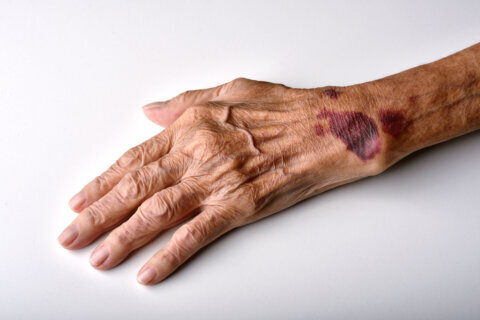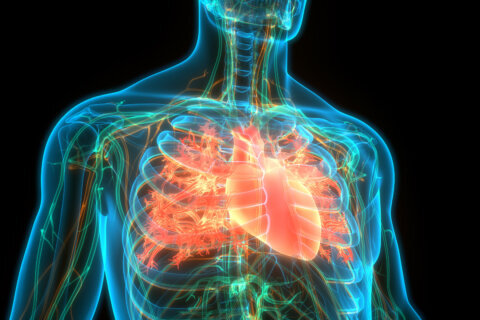This content is sponsored by MedStar Washington Hospital Center.
Although heart disease is the leading cause of death across genders in the U.S., men typically have their first heart attack an average of 10 years earlier than women, according to the Centers for Disease Control and Prevention. Additionally, one in four men in the U.S. die from a cardiovascular event such as a heart attack.
Research shows that along with typical risk factors – such as high cholesterol and high blood pressure – hormonal changes, abdominal obesity, and emotional challenges in middle adulthood lead to an increased risk of heart attack in men earlier in life.
Women usually have higher levels of hormones like estrogen and progesterone, which lowers their risk of heart disease by keeping the blood vessels healthy. Since men have less of those hormones, they have less protection.
However, Dr. Robert Lager, a clinical cardiologist at MedStar Health, says testosterone – a hormone more common in men – can also protect the heart. But men start seeing their testosterone levels decrease around age 40, and Dr. Lager says historically, doctors have not prescribed testosterone for heart problems due to its potentially harmful effects.
“I think it’s also because we’ve seen men who have taken high doses of testosterone – like bodybuilders – do really badly. They have a lot of issues related to vascular disease and strokes and high blood pressure,” he said.
Dr. Lager says that the narrative around testosterone is changing over time.
“I think it’s starting to be more about low testosterone potentially increasing risks,” Dr. Lager said. “Testosterone does some good things to blood vessels. It increases the size of blood vessels and increases blood flow.”
Still, there is not enough proof that prescribing extra testosterone would fix heart issues.
“But I will say that the idea of supplementing men who are having symptoms from low testosterone – previously thought may be dangerous – I think it’s safe,” Dr. Lager said.
While women tend to carry more fat in their hips, men are more likely to carry fat in their bellies. Because belly fat, also known as visceral fat, contains inflammatory cells, it can heighten inflammation, worsen your cholesterol profile, and raise your blood sugar. It can also lead to an increased chance of heart disease.
Dr. Lager says alcohol contributes to belly fat, particularly in men, so those who drink are more likely to see abdominal obesity.
“Because men, when they deposit fat and from alcohol, it’s the classic beer belly, right? Alcohol-related fat goes to your belly,” he said, adding that “there is no healthy dose of alcohol.”
While aerobic exercise is certainly beneficial, Dr. Lager suggests restricting calories and avoiding carbs to help with losing belly fat. He says the Mediterranean diet is currently the cardiology diet of choice because it’s sustainable. Additionally, the American Heart Association recommends at least 150 minutes of exercise per week.
People who experience high levels of stress also have an increased risk of cardiovascular disease, this includes loneliness and social isolation.
“There are definitely studies that have shown people who are isolated, detached and not socially connected, they have cardiac events earlier,” Dr. Lager said.
Healthy sleep habits, therapy and work-life balance can lead to decreased levels of stress.
Not all signs of early heart disease in men are recognizable. One example is erectile dysfunction, which is not only a quality-of-life concern, but also an early warning sign of cardiovascular disease. Oftentimes it’s the first sign that something is wrong.
Dr. Lager said this is because erectile function is a vascular hydraulic process. If the small blood vessels of the penis are blocked, it’s probable that larger blood vessels leading to the heart are also at risk of being blocked.
“If you’ve got some illness of your vascular system, it’s essentially like the canary in the coal mine,” he said. “That’s one of the most sensitive places you’re going to start to see vascular dysfunction.”
Although many people with low testosterone have erectile dysfunction, rarely is erectile dysfunction only caused by low testosterone.
“We keep thinking about sexual function as being all about testosterone assessment, but a lot of it’s just how healthy is your vascular system?”
More immediate symptoms of heart attacks and heart disease in both men and women include a tightness or heaviness in the chest, excessive sweating, trouble breathing and severe indigestion.
Read more about cardiovascular health in men in a blog post by Dr. Lager on the MedStar Health website.







